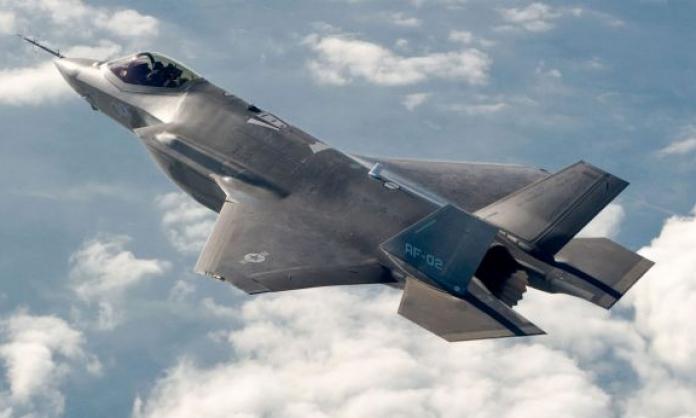As universities are transformed into self-managed corporations, education is being treated less like a public benefit and more as a marketable commodity.
While this is stating the bleeding obvious in terms of limiting working class access to education, there is a more insidious move inside universities. Research programs are increasingly designed according to the allocation of tax-deductible corporate research grants.
Large firms that already benefit from tax breaks, government contracts and the migration of people from the public to the private sector are now able to shape university research in ways that will then (again) benefit the corporate world.
A case in point is the recent announcement that Lockheed Martin will open a $13 million research facility, the Science Technology Engineering Leadership and Research Laboratory (STELaR Lab) within the district of RMIT and Melbourne universities.
Lockheed Martin is the largest aerospace and military company in the world. It will be further aided by the federal government’s Next Generation Technology Fund, which plans to outlay more than $1.3 billion over the next decade to increase the country’s military capacity.
The CEO of its Australian arm, Raydon Gates, said in an August press release: “The STELaR Lab further reinforces our position as an industry leader in defence and technology, and we are proud of our ability to bring best practice and leading edge concepts to Australia to support growth and innovation”.
Within the aerospace and technology industries, there is no prevaricating that this is about increasing the company’s market share in Australia.
Gates knows what he’s talking about. His 37 years in the Australian Navy included commanding guided missile frigates and, as a rear admiral, heading the Australian Defence College. He moved to Washington when appointed defence attaché and head of the Australian Defence Staff before “retiring” and joining Lockheed Martin in 2011.
Forty years of knowledge and networks obtained in the public sector have now been transferred to Lockheed Martin.
This is another disturbing trend in modern capitalism: career public servants and politicians selling their services to the corporate sector, specifically in defence. (Former defence minister Peter Reith famously left politics to become an adviser to Tenix, at the time Australia’s largest arms company, subsequently sold to BAE Systems.)
Gates is not alone on the board of Lockheed Martin Australia; he is joined by former Royal Australian Navy vice admiral Chris Ritchie, who oversaw the purchase of many Lockheed Martin weapons systems. Also on the board is career mandarin Allan Hawke, who, after being sacked as secretary for defence in 2002, went on to become a consultant to government and industry – most recently as commissioner of the “independent” report favourable to gas fracking in the NT.
Together, these three men have access to all levels of defence and government officials in Australia. But the icing on the cake for Lockheed Martin was surely this year’s announcement that former minister for defence and ambassador to the US, Kim Beazley, had also joined the board.
Prior to taking on the defence portfolio, Beazley was special minister of state. He oversaw the floating of the dollar and deregulation of the financial and telecommunications industries, and sold Qantas and the Commonwealth Bank, among other state assets.
After becoming defence minister, his love of whizz-bang weaponry earned him the moniker “Bomber Beazley”. He continued the economic restructuring within the military and became the voice of arms companies with his policy paper “Defence policy’s contribution to industrial development”.
You don’t have to be too cynical to ask questions. Just how long have these men actually been working for Lockheed Martin? What influence did Beazley and his mates have in securing the $18 billion F-35 stealth fighter contract for Lockheed? And how much of a role did they play in securing this latest investment, which will pay significant dividends to the company and attract substantial public funding in the years to come?
The “partnering” of corporate giants with Australian universities and the use of government funds to subsidise the research is not new. Similar market-driven influence exists in many fields, such as geology, where mining interests have had a significant role in curriculum development.
RMIT is world renowned for its aerospace and drone research. This latest move by Lockheed Martin to buy the knowledge and networks gained by some of the most senior public servants, military commanders and politicians and open a research centre that will determine the shape of research in public universities is a further step in the takeover of our institutions by the largest, meanest and dirtiest corporations in the world.
----------
DIRECT ACTION CAMP
HOSTED BY THE DISARM COLLECTIVE
The Disarm Collective are organising a protest convergence at Pine Gap to assert a call for peace instead of continuing to facilitate the US war machine. A camp will be located on Arrernte country near the Pine Gap facility. Some infrastructure will be provided including food, water, toilets and some shelter. The protest is organised as a non-hierarchical, grassroots and decentralised campaign.
To get involved or for more information:
email: [email protected]
Jacob Grech is a member of Renegade Activists








